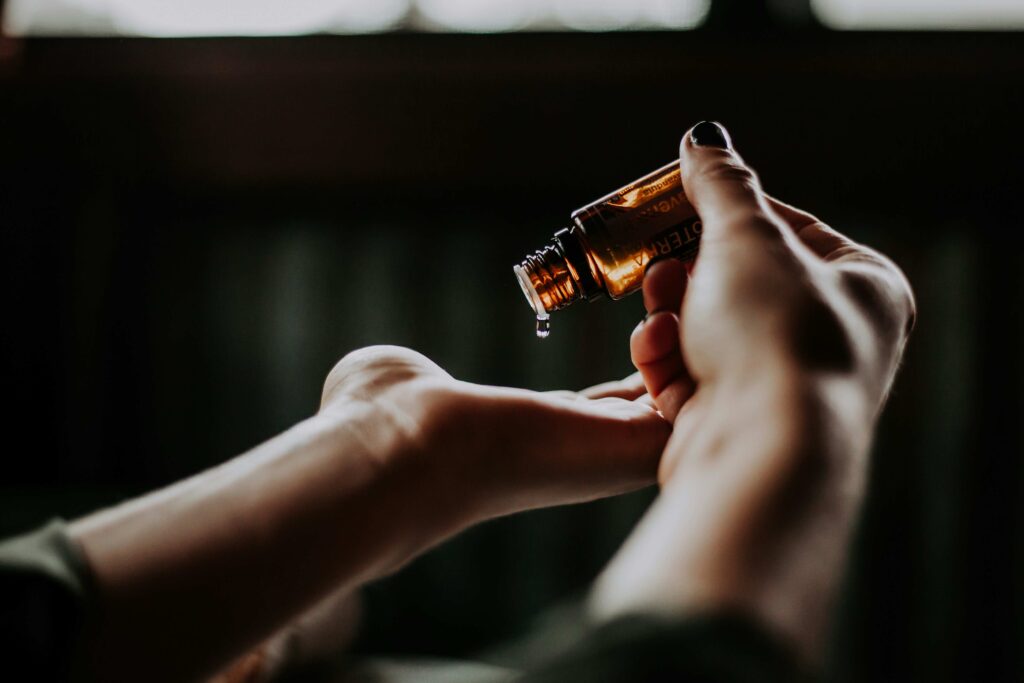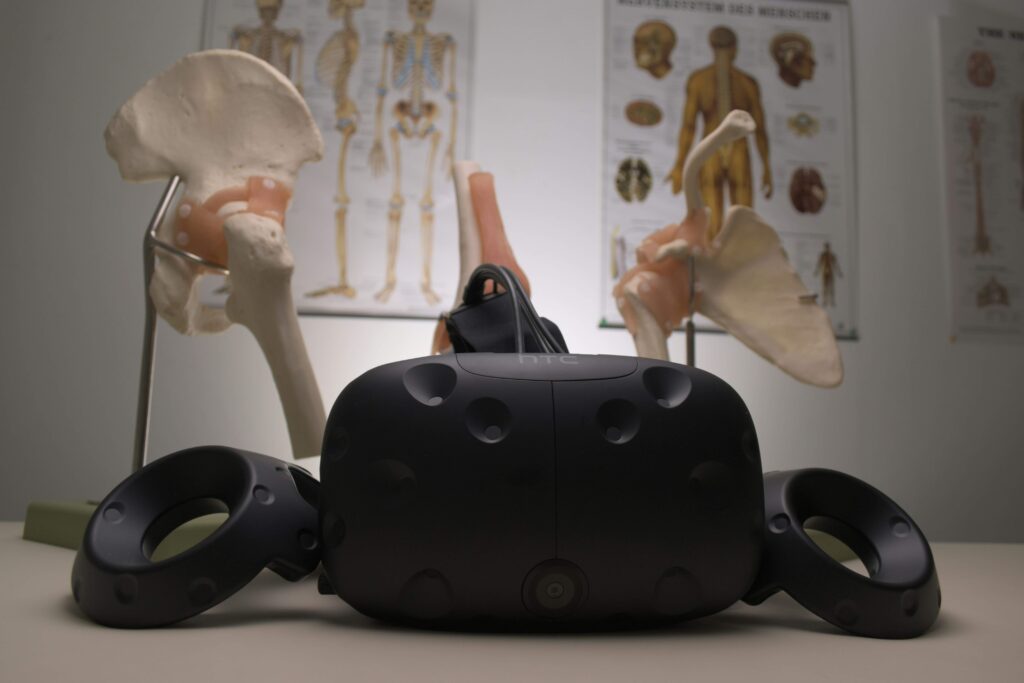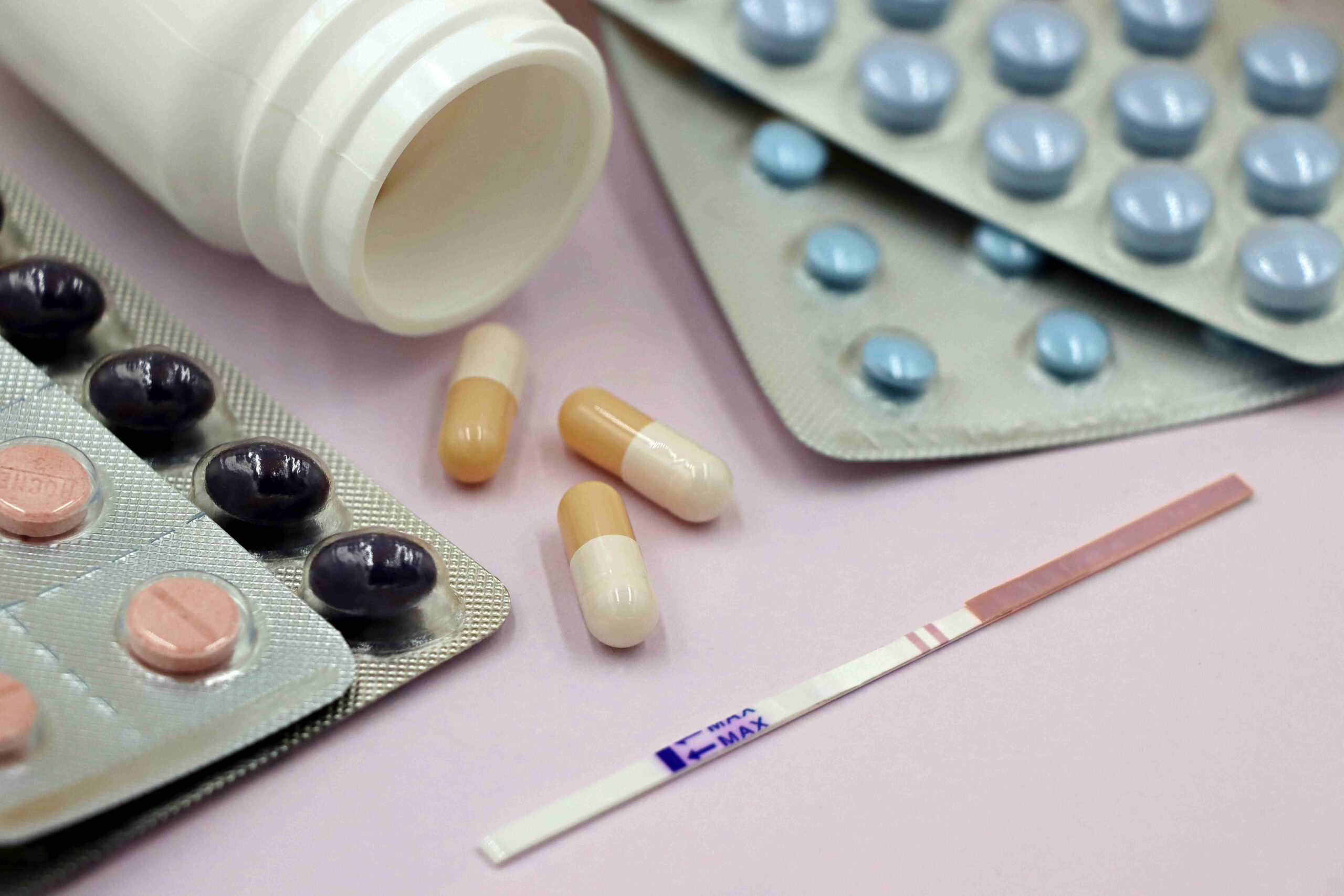Table of Contents
INTRODUCTION
More importantly is Hormones Replacement Therapy regulate most of the bodily functions, such as emotions and moods, energy levels, metabolism, and general well-being of an individual. Most people go through many changes in their physical and emotional behaviors with different hormonal imbalances as they age. That is when HRT comes into play by solving the problem of hormonal imbalances and trying to look after quality-of-life issues.
We will discuss today Hormone Replacement Therapy, its benefits, and the new signs that determine the need for it. With a focus on the keyword Hormone Replacement Therapy, this blog deals with an in-depth guide that answers your questions better on its importance.
What Is Hormone Replacement Therapy (HRT)?
Hormone Replacement Therapy is an endocrinological treatment conceived to replace the hormones that decrease with age, during menopause, or because of other health disorders. It mainly focuses on estrogen and progesterone levels, or testosterone levels, in order to remove symptoms of hormonal deficiency.
HRT symptoms Did You Know:
Menopause symptoms.
Andropause, also known as male menopause.
Medical-related hormonal imbalance.
Loss of hormone levels after surgery (for example, after removal of the uterus).

How Hormone Replacement Therapy Works
Hormone replacement therapy is achieved with different methods through which hormonal balance can be restored.
Pills: Oral, the most typical route of hormone replacement
Patches: Applied on the skin where they deliver hormones in a slow, steady rate.
Gels and Creams: applied directly to small areas of skin for localized absorption
Implants: hormone-releasing devices implanted under the skin.
Injections: administered directly into the bloodstream for rapid effects.
The treatment choice differs between people depending on factors, especially upon past medical history and the specific hormones to be supplemented.
Benefits of Hormone Replacement Therapy
1. Relieving Menopausal Symptoms
For women, HRT is highly effective in treating the following symptoms
Hot flashes
Night sweating
Vaginal dryness
Mood swings.
2. Promotes healthy bones
Loss of estrogen in the post-menopausal years usually results in osteoporosis. HRT maintains the bone density and the chances of fracturing it are reduced.
3. Helps in improving mood and mental clarity
Hormonal imbalances are the main reasons that cause most mood disorders and cognitive problems. HRT righting their hormonal imbalance will let a woman develop a clear and focused mind with proper memory and emotional well-being.
4. Increases energy
Fatigue: This is one of the common signs of hormone decline. The replenishment of hormone reserves through HRT may allow an individual to regain zest and zest for life.
5. Enhances Sexual Life
This HRT raises the libido, reduces pain on cohabiting in the vagina, and generally improves sexual life.
6. Alleviates Symptoms of Andropause
In men, HRT tends to include testosterone replacement and may cure such symptoms as:
Low energy.
Muscle shrinkage.
Low sex drive.
While the more generic symptoms like hot flashes and night sweats have been known for ages, new, subtle signs prevail; there has to be a necessity for Hormone Replacement Therapy:
Hormonal Imbalance can cause metabolic changes, resulting in significant weight gain around the abdomen.
2. Chronic Fatigue
Feeling tired even after sufficient rest is a manifestation of low hormone levels, especially in the case of estrogen, progesterone, or testosterone.
3. Heightened Anxiety or Depression
Unexplained mood swings, irritability, or anxiety can be associated with hormonal changes.
4. Hair Thinout or Loss
Hair thin out or hair loss is caused by the hormonal shift, especially the decline in the estrogen and progesterone hormones.
5. Dry Skin and Brittle Nails
Hormonal deficiencies can result in the loss of the skin’s elasticity and hydration, manifesting as dryness and brittle nails.
6. Memory Problems or Brain Fog
Difficulty concentrating, forgetfulness, or mental slowness are more recent cognitive symptoms associated with hormonal decline.
7. Loss of Muscle Mass and Strength
A decrease in testosterone will start causing loss of muscle tone and strength even in women.
8. Sleep Problems
Hormonal imbalances are frequently the cause of insomnia or restless sleep, and when combined with other symptoms such as fatigue or irritability, it can be most miserable.
9. Loss of Sex Drive
Loss of sexual desire or arousal can be quite severe, so that interest in any sexual activity is lost. The man may feel no desire for sexual activity himself, and his female partner feels rejected. This may be the first sign that hormone replacement is in order, especially testosterone replacement.
10. Recurrent UTIs
In hormones, infection of the urinary tract has been shown to lie open or weakened natural defense.

Types of Hormone Replacement Therapy
1. Estrogen-Only HRT
This is prescribed for women who have undergone a hysterectomy. In this type of HRT, only estrogen is replaced.
2. Combination HRT
In combination HRT, both estrogen and progesterone are prescribed to women with an intact uterus as a preventive measure against endometrial cancer.
3. Testosterone Replacement Therapy (TRT)
Primarily for men, but also helpful for women with low testosterone levels.
4. Bioidentical Hormone Replacement Therapy (BHRT)
Use hormones chemically identical to those found within the human body, and it is at times marketed as a more natural alternative.
Is Hormone Replacement Therapy Suitable for You?
Hormone Replacement Therapy can be life-changing, but it is not for everyone. Some medical conditions, like breast cancer, blood clots, or disease within the liver, may make the HRT contraindicated.
Evaluating Appropriateness
Find a Specialist: An endocrinologist or gynecologist can talk to you about your symptoms and medical history.
Hormone Testing: Blood tests determine hormone levels and whether deficiencies are present.
Discuss Risks and Benefits: Review possible benefits against possible side effects.
Risk and Side Effects of HRT
Generally safe, HRT poses some risks; these include.
Increased risk of developing a blood clot.
Increased chance of developing certain types of cancer, such as breast or ovarian.
Possible cardiovascular disease.
Close monitoring and custom dosing significantly lowers those risks, so closely working with a health care provider is involved.
Recent Development in Hormone Replacement Therapy.
There are advancements in medical science that aid safe and effective HRT:
1. Customized HRT
DNA testing and sophisticated diagnostics now make far more customized hormone therapies based on one’s genetic profile.
2. Nanotechnology and HRT
Nanoparticles improve the delivery of hormones, thus reducing errors in dosing and minimizing side effects.
3. Non-Hormonal Therapies
Explorations of herbal agents and SERMS offer alternative therapy for women who cannot continue HRT.
Natural Alternatives to HRT
There are people who do not want to have medical treatment. Those who would want a non-medical approach for a hormone rebalance may find alternative means:
Phytoestrogens: Soybeans, flaxseed, and legumes basically replicate what estrogen does in their hormonal functions.
Regular Exercise: This actually helps boost metabolism and maintain the balance in hormonal levels.
Balanced Diet: Eating healthy fats, lean proteins, and whole grains helps boost the production of hormones in the body.
Managing Stress: Techniques like yoga and meditation calm down cortisol, which is a primary stress hormone.
1. Will HRT Make Me Gain Weight?
Weight gain not a consequence of HRT. Inadequate changes in weight most of the time result from hormonal imbalances, not by the nature of the therapy itself. In return, restoring the normal levels of hormones restores a normal metabolism and thus supports better control over one’s weight.
2. Is HRT only for women?
Although HRT is most commonly associated with women going through menopause, its benefits in men who have low levels of testosterone or any other hormonal deficiency are equally wonderful in women. Testosterone Replacement Therapy is one of the most common types of HRT for men.
3. Is HRT Safe to Use for the Long Term?
HRT is safe under medical supervision. Short term and it is often prescribed for acute symptomatic management, long term for others with chronic deficiencies considering risks are assessed at appropriate intervals.
4. Are Bioidentical Hormones Better?
Bioidentical hormones are chemically identical to the hormones produced in your body. While often marketed as being a little more “natural,” their safety and effectiveness are equal to conventional HRT. Never hesitate to consult with your doctor about options for tailoring the best therapy for your needs.

Hormone Replacement Therapy: Real-Life Success Stories
Maria’s Story: Conquering the Menopause Symptoms
Maria was a school teacher who had reached 52 years with menopausal symptoms: heavy hot flashes and a temper. She went to see her doctor and started on Hormone Replacement Therapy that, within three months, restored her sleep, mood, and vigor.
John’s Story: How TRT Restored His Energies
John was an entrepreneur who went for low energy levels, declined muscle mass, and reduced libido. Blood tests showed that he has low testosterone levels, and he started Testosterone Replacement Therapy. In the next six months, John regained energy, rebuilt his muscle, and maintained a good quality of life.
These stories underscore the transformative impact of Hormone Replacement Therapy when tailored to individual needs.
Preparing for Hormone Replacement Therapy
Hormone replacement therapy is one process that involves preparation and, most importantly, a knowledgeable decision. Here is the key step-by-step guide:
1. Know Your Symptoms
Write down your symptoms and what you have physically, emotionally, or cognitively felt. This will help your health care professional narrow down what the potential hormonal imbalance is.
2. Choose a Qualified Specialist
Consult with an endocrinologist or gynecologist experienced with hormone treatments.
3. Work with a Detailed Testing Phase.
Some common tests:
Blood tests to measure how much hormones are present in your body.
Bone density scans if you’re at risk for osteoporosis.
Cardiovascular screening to assess any conditions that pre-existed.
4. Set Realistic Expectations
HRT is not a magic pill. It takes weeks or months for some to really feel any positive changes, so it demands patience and perseverance.
Lifestyle Changes to Enhance Hormone Replacement Therapy
HRT can be most effective when combined with healthy lifestyle habits. These can enhance the treatment and overall well-being.
1. The Hormone-Friendly Diet
Intake Omega-3 Fatty Acids: In fish, walnuts, and flaxseeds, these improve hormone secretion.
Reduce Processed Foods: Sugar and refined carbs can be caustic to the balance of insulin with cortisol.
Intake Cruciferous Vegetables: Broccoli, kale, and Brussels sprouts enhance the metabolism of estrogen.
2. Regular Exercise
Strengthening: Increases testosterone, increases bone density.
Cardio exercises: Can boost mood, supports cardiovascular wellbeing.
Melatonin and growth hormone are regulated by sleep.
4. Reducing Stress
Chronic stress disrupts cortisol; overall hormonal balance is lost.
Hormone Replacement Therapy and Mental Health
Mental state is highly affected by hormones. Generally, imbalances manifest as anxiety, depression, or moodiness. By rebalancing the hormones, HRT can:
Alleviate depression symptoms that go with menopause or andropause.
Improve concentration, mental clarity,
Relieve irritability, gain emotional stability.
Scientific research has established the fact that the quality of life as well as the mental health of HRT users do have a marked improvement.
The Future of Hormone Replacement Therapy
Progress in the field of medical science is the future of Hormone Replacement Therapy. In addition, it is becoming safer and more effective as well.
1. AI-Based Treatment Prescription
Intelligent machines interpret individual hormone profiles to develop ultra-personalized HRT protocols.
2. Sustained-Release Formulations
New delivery systems provide sustained hormone release with even fewer side effects and more ease of use.
3. Genomic Integration
Genetic tests can diagnose a person’s tendency to develop hormonal imbalance. This allows for preventive measures at the outset.

4. Plant-Based Hormones
Examining phytohormones opens avenues to a more benign, environment-friendly alternative to synthetic hormones.
Conclusion
Hormone Replacement Therapy is an incredibly powerful remedy when you are in a battle with hormonal imbalances and you seek to feel well again. It can detect the new warning signs-fuzziness in your brain, sleepiness, and low desire.
While HRT entails risks, with advancing technology and personalized treatments, it becomes safer and more effective than ever. Always consult a health care professional to determine if Hormone Replacement Therapy is best for you.
Hormone Replacement Therapy can help you be vigilant and proactive in embracing a healthier and balanced lifestyle.
Disclaimer
This blog should be used as educational and supportive material only. No information on any medical treatment, including Hormone Replacement Therapy, should be considered as a replacement for a professional health care provider or physician. Everyone’s needs are different, as well as similar medical conditions, so only your healthcare professional can decide what’s best for you.
Information published within this blog is updated based on the latest cutting-edge medical research and practice at the time of publication. Because medical science evolves with every new finding, there might be new findings that may appear later. The author and publisher of the blog do not accept any liabilities for adverse effects from the use or application of the information in this blog.
Always seek professional advice if you are dealing with a health concern.

